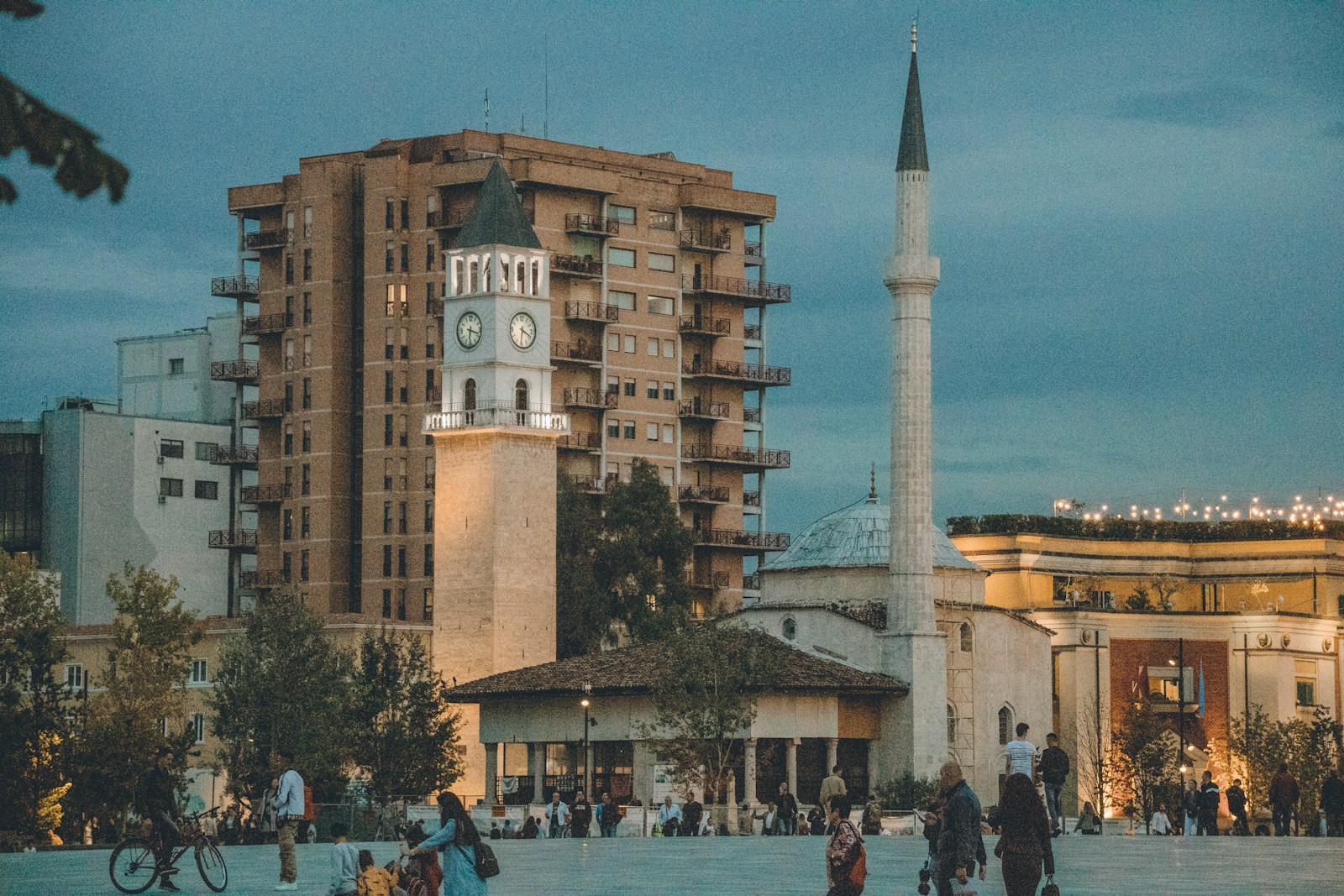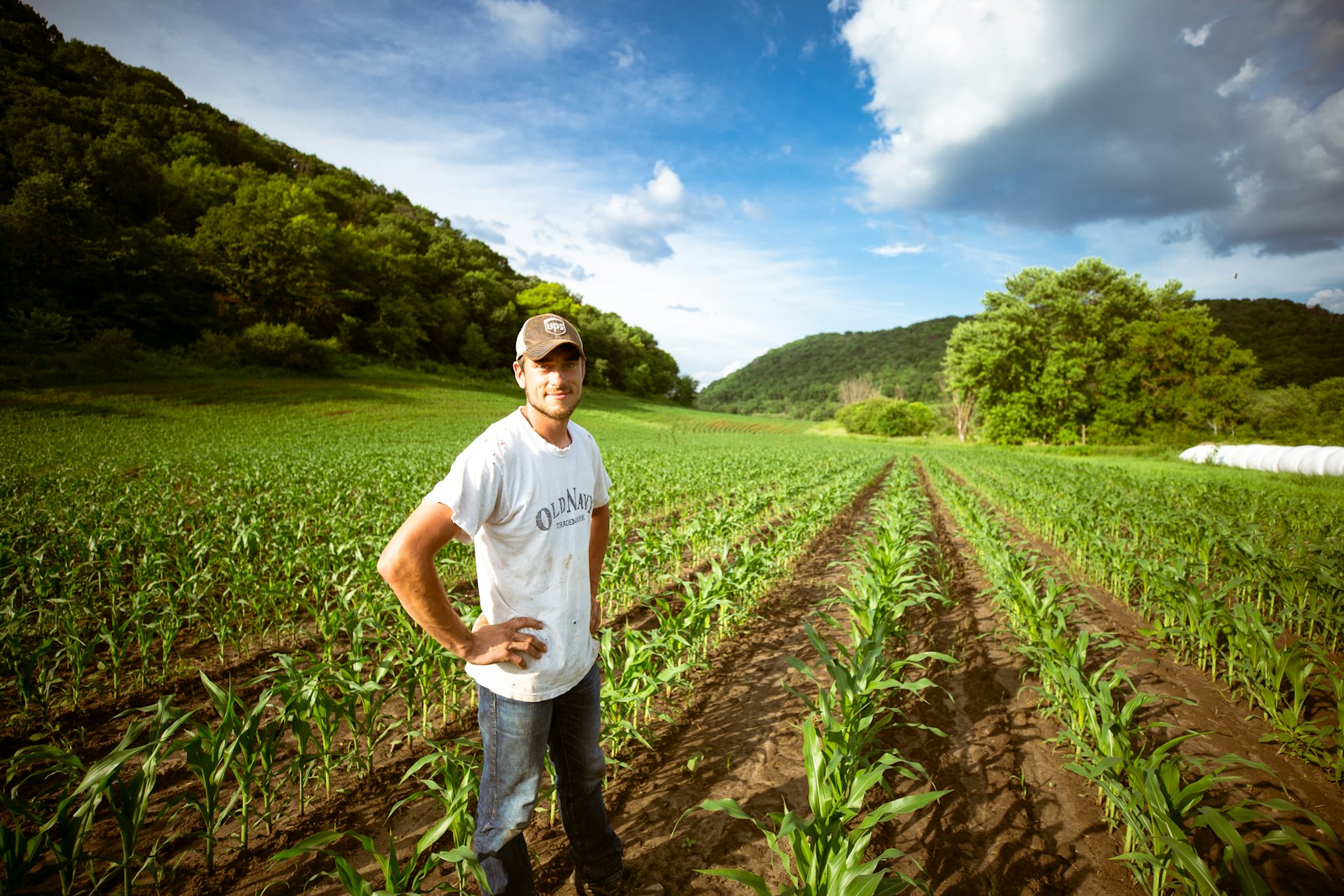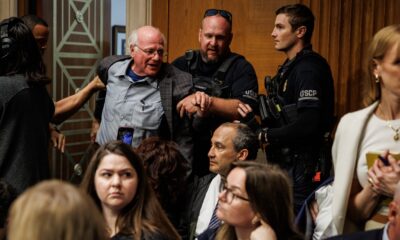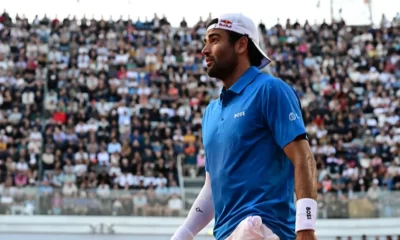Politics
European Parliament Press Kit for the European Council of 21 and 22 March 2024 | News
European Parliament President Roberta Metsola will represent the European Parliament at the summit, address the heads of state or government at 15.00, and hold a press conference after her speech.
When: Press conference at around 16.00 on 21 March
Where: European Council press room and via Parliament’s webstreaming or EbS.
At their meeting in Brussels, heads of state or government will focus on Russia’s war against Ukraine and the EU’s continued support for the country, the war in the Gaza Strip, European security and defence, enlargement, the EU’s response to the current concerns in the agricultural sector and on economic coordination.
Russia’s war against Ukraine
In a joint statement issued on 23 February, the Presidents of the EU institutions stressed that “the European Union will always support Ukraine’s independence, sovereignty and territorial integrity within its internationally recognised borders.
Russia and its leadership bear sole responsibility for this war and its global consequences, as well as for the serious crimes committed. We remain determined to hold them to account, including for the crime of aggression. (…)
The European Union will continue its strong and unwavering political, military, financial, economic, diplomatic and humanitarian support to help Ukraine defend itself, protect its people, its cities and its critical infrastructure, restore its territorial integrity, bring back the thousands of deported children, and bring the war to an end.
We will continue to address Ukraine’s pressing military and defence needs, including deliveries of urgently needed ammunition and missiles. (…) We are also working on future security commitments which will help Ukraine defend itself, resist destabilisation efforts and deter acts of aggression in the future.”
In a resolution adopted on 29 February, MEPs took stock of the two years since Russia’s full-scale invasion of Ukraine on 24 February 2022. Highlighting how the war has fundamentally changed the geopolitical situation in Europe and beyond, they say the main objective is for Ukraine to win the war, warning of serious consequences if that does not happen. MEPs say that other authoritarian regimes are watching how the conflict develops to assess their own leeway for enacting aggressive foreign policies.
For Kyiv to win the war, there should be “no self-imposed restriction on military assistance to Ukraine”, with Parliament reaffirming the need to provide the country with whatever is needed to regain full control over its internationally recognised territory.
All EU and NATO allies should support Ukraine militarily with no less than 0.25% of their GDP annually, MEPs argue, while urging EU countries to immediately enter into dialogue with defence companies to ensure increased production and deliveries of ammunition, shells and missiles to Ukraine, which should be prioritised over orders from other third countries
The resolution underlines the urgent need for a solid legal regime to allow Russian state-owned assets frozen by the EU to be confiscated and used for reconstruction in Ukraine and the compensation of victims of the war. Russia must be obliged to pay reparations imposed on it to ensure that it contributes substantially to rebuilding Ukraine.
On 12 March, Parliament adopted a directive, agreed with member states, on criminalising the violation and circumvention of EU sanctions. It will introduce a common definition of, and minimum penalties for, violations.
EU sanctions can consist of freezing funds and assets (including crypto-assets), travel bans, arms embargoes, and restrictions on business sectors. While sanctions are adopted at the EU level, enforcement relies on member states, amongst which the definitions of sanction violations and associated penalties vary. The new law sets consistent definitions for violations, which would include acts such as not freezing funds, not respecting travel bans or arms embargoes, transferring funds to persons subject to sanctions, or doing business with state-owned entities of countries under sanction. Providing financial services or legal advisory services in violation of sanctions will also become a punishable offence.
The directive ensures the punishment for violating and circumventing sanctions is dissuasive by making them criminal offences carrying prison sentences of a maximum of five years in all member states.
In a resolution adopted on 29 February, the European Parliament strongly condemns the murder of Alexei Navalny and gives its full support to Yulia Navalnaya in her determination to continue his work. MEPs stress that the full criminal and political responsibility for his death lies with the Russian state, and its president Vladimir Putin in particular, who should be held accountable.
Stressing that the people of Russia cannot be confused with the “warmongering, autocratic and kleptocratic regime of the Kremlin”, MEPs call on the EU and its member states to continue to show unfailing solidarity and actively support independent Russian civil society and the democratic opposition.
Parliament demands that the EU, its member states and likeminded partners around the world continue their political, economic, financial, and military support for Ukraine as the best answer to the current oppressive and aggressive practices by the Kremlin regime. Ukraine’s decisive victory may lead to genuine changes in the Russian Federation, in particular deimperialisation, decolonialisation and refederalisation, all of which are necessary conditions for establishing democracy in Russia.
Yulia Navalnaya, the widow of murdered Russian anti-corruption activist Alexei Navalny, addressed the European Parliament on 28 February.
In her speech, Ms Navalnaya accused Russian authorities, led by President Vladimir Putin, of having orchestrated Mr Navalny’s killing. She said that his public murder had once again shown everyone that “Putin is capable of anything and that you cannot negotiate with him”. She also expressed concern that none of the EU’s current restrictive measures have stopped Russia’s aggression in Ukraine.
To this end, Ms Navalnaya called for more innovative ideas to defeat Putin’s regime, both domestically and its actions towards its neighbours. “If you really want to defeat Putin, you have to become an innovator (…). You cannot hurt Putin with another resolution or another set of sanctions that is no different from the previous ones (…). You are not dealing with a politician but with a bloody mobster (…). The most important thing is the people close to Putin, his friends, associates, and keepers of the mafia’s money (…). You, and all of us, must fight this criminal gang.”
Further reading
Joint Statement by the Presidents of the European Union Institutions on the occasion of the 2 year anniversary of the Russian invasion of Ukraine
Parliament calls on the EU to give Ukraine whatever it needs to defeat Russia
EU sanctions: new rules to crack down on violations
MEPs: EU must actively support Russia’s democratic opposition
Yulia Navalnaya: “If you want to defeat Putin, fight his criminal gang”
Debate 12 March 2024: Preparation of the European Council meeting of 21 and 22 March 2024
Debate 13 March 2024: Need to address the urgent concerns surrounding Ukrainian children forcibly deported to Russia
Parliament wants tougher enforcement of EU sanctions against Russia
A long-term solution for Ukraine’s funding needs
How the EU is supporting Ukraine
EU stands with Ukraine
MEPs to contact
David McALLISTER, (EPP, DE), Chair of the Committee on Foreign Affairs
Nathalie LOISEAU (Renew, FR), Chair of the Subcommittee on Security and Defence
Michael GAHLER (EPP, DE), standing rapporteur on Ukraine
Andrius KUBILIUS (EPP, LT), standing rapporteur on Russia
Sophie in ’t Veld (Renew, the Netherlands), rapporteur on the violation of Union restrictive measures
War in the Gaza Strip
In a resolution adopted on 14 March, MEPs call on Israel to immediately allow and facilitate full aid delivery into and throughout Gaza via all existing crossings, underlining the urgent need for rapid, safe and unhindered humanitarian access.
They reiterate their call for an immediate and permanent ceasefire to address the looming risk of mass starvation in Gaza and the immediate and unconditional release of all hostages. The International Committee of the Red Cross must be given immediate access to all Israeli hostages being held in Gaza to provide them with medical care.
There can be no prospect of peace, security, stability and prosperity for Gaza or for Palestinian-Israeli reconciliation, MEPs warn, as long as Hamas and other terrorist groups play any role in Gaza.
Parliament also strongly condemns the rise in extremist settler violence and attacks by the Israeli armed forces against Palestinians in the West Bank, attacks that have already killed hundreds and injured thousands of Palestinian civilians. MEPs strongly condemn the acceleration of the illegal settlement of Palestinian land, which constitutes a violation of international law. They are deeply concerned about the risk of escalation in the conflict, in particular in Lebanon.
In a resolution adopted on 18 January, Parliament condemned in the strongest possible terms the despicable terrorist attacks committed by Hamas against Israel. MEPs also denounced the disproportionate Israeli military response, which has caused a civilian death toll on an unprecedented scale.
Israel has the right to defend itself within the limits of international law, they stress, which implies that all parties in a conflict must distinguish, at all times, between combatants and civilians, that attacks must only be directed at military objectives, and that civilians and civilian objects must not be targeted in the attacks.
The resolution also calls for a European initiative to put the two-state solution back on track and emphasises the absolute necessity of immediately relaunching the peace process. It welcomes the European Union and the Arab League’s Peace Day Effort for Middle East Peace, which was launched just before the attacks took place on 7 October.
Further reading
Parliament calls on Israel to open all crossings to Gaza for humanitarian aid
Israel-Hamas war: MEPs call for a permanent ceasefire under two conditions
MEPs condemn Hamas attack on Israel and call for a humanitarian pause
Resolution: The despicable terrorist attacks by Hamas against Israel, Israel’s right to defend itself in line with humanitarian and international law and the humanitarian situation in Gaza
President Metsola at the European Council: EU must remain coherent and united
Leading MEPs condemn attack by Hamas terrorists against Israel
MEPs to contact
David McALLISTER, (EPP, DE), Chair of the Committee on Foreign Affairs
European security and defence
In two reports on the EU’s foreign, security and defence policy, adopted on 28 February, MEPs warn that the Russian war of aggression against Ukraine has sparked a series of global economic shocks and added significant destabilising pressure on countries in the Western Balkans and the Eastern Partnership.
They want the EU to reform its neighbourhood policy and accelerate the enlargement process, while advancing institutional and decision-making reforms, including the publication of a roadmap for future work by the summer of 2024. MEPs urge the EU to improve its capacity to act in response to, as well as to pre-empt, global crises.
With US-China competition as a backdrop, Parliament is concerned about the increasing relevance of more exclusive formats of cooperation and emphasises that traditional multilateral forums – in particular the UN and its agencies –should be the EU’s preferred forums for cooperation.
With the focus on Russia’s illegal, unprovoked and unjustified war of aggression against Ukraine, Parliament highlights the role played by Iran, Belarus, North Korea and China in supporting the Kremlin’s war machine. MEPs say Russia’s war is part of a wider strategy to undermine the rules-based international order and underline that the EU will continue to support Kyiv with the necessary military means to end the conflict.
MEPs also demand an increase to and acceleration of the EU’s financial and military assistance, stressing that Ukraine’s military victory and the country’s future integration in the EU and NATO are necessary to guarantee Europe’s security, stability and sustainable peace.
Further reading
Foreign policy, security and defence: the EU should focus on strategic alliances
MEPs to contact
Nathalie LOISEAU (Renew, FR), Chair of the Subcommittee on Security and Defence
David McAllister (EPP, Germany), Chair of the Foreign Affairs Committee and rapporteur on the Common Foreign and Security Policy
Sven Mikser (S&D, Estonia), rapporteur on the common security and defence policy
Enlargement
On 19 March, MEPs on the Committee on Foreign Affairs discussed the future of EU enlargement with the foreign ministers of Austria, Denmark, Estonia, Finland, Latvia, Lithuania, Slovenia and the deputy ministers or secretaries of state of Bulgaria, Croatia, Cyprus, Greece and Hungary.
In the 2023 annual report on Common Foreign and Security Policy, MEPs warn that the Russian war of aggression against Ukraine has significantly destabilised countries in the Western Balkans and the Eastern Partnership. According to the report, this jeopardises EU security. To address this, MEPs recommend that the EU reforms its neighbourhood policy and accelerates the enlargement process.
In February, Parliament adopted a report calling for institutional and financial reforms to ensure the EU’s capacity to absorb new members. With the Ukraine Facility, it approved long-term funding for Ukraine to aid its recovery and modernisation efforts and to help it on its way to EU membership. MEPs also supported the Reform and Growth Facility for the Western Balkans to bolster the EU’s partners in the region by facilitating extensive socio-economic reforms, enhancing rule of law fundamental rights, and accelerating the economic alignment of these partners with the EU standards.
In a resolution adopted on 13 December, Parliament called the EU’s enlargement policy one of the strongest geopolitical tools at its disposal and a strategic investment in peace and security. MEPs are urging the European Council to open accession negotiations with Ukraine and the Republic of Moldova. Provided that certain steps are taken, MEPs say that accession talks should also be opened with Bosnia and Herzegovina, and Georgia should be granted candidate status.
MEPs also stress that the EU should establish a clear enlargement timetable for candidate countries to conclude accession negotiations by 2030. There should, however, be no fast-track route to membership. MEPs insist that the so-called Copenhagen criteria must be fulfilled to ensure that candidate and potential candidate countries demonstrate a consistent and enduring commitment to democracy, the rule of law, human rights and respect for the protection of minorities, and economic reforms.
Further reading
Serbia and Kosovo must work to de-escalate the situation in northern Kosovo
Montenegro’s EU accession progress is losing momentum
Parliament pushes for start of EU accession talks with Moldova
MEPs call on EU and Türkiye to look for alternative ways to cooperate
MEPs assess the situation in Albania and Bosnia and Herzegovina
MEPs to contact
David McAllister (EPP, Germany), Chair of the Foreign Affairs Committee
Tonino Picula (S&D, HR), rapporteur on Montenegro
Nacho Sánchez Amor (S&D, ES), rapporteur on Türkiye
Isabel Santos (S&D, PT), rapporteur on Albania
Paulo Rangel (EPP, PT), rapporteur on Bosnia and Herzegovina
Agriculture
The Commission’s simplification package for farmers and the contribution of the agricultural sector to the EU’s climate objectives were discussed in two debates with commissioners in the Agriculture Committee on 19 March. MEPs debated with the Commissioner for Agriculture, Janusz Wojciechowski, actions that the Commission is proposing to reduce the administrative burden on farmers. MEPs discussed the agricultural sector’s contribution to the EU’s climate objectives with the Commissioner for Climate Action, Wopke Hoekstra.
The debate with Commissioner Wojciechowski follows an exchange of views on the same topic MEPs had with Commission representatives during a committee meeting on 26 February. Link to re-watch the exchange.
In a letter sent on 20 February to Commissioner Wojciechowski, the Chair of the Agriculture Committee, Norbert Lins (EPP, DE), supported by the majority of political groups, put forward proposals to tackle current difficulties encountered by European farmers.
A plenary debate about sustainable and fairly-rewarded EU agriculture took place on 7 February. Link to re-watch the debate.
On 12 March, MEPs debated the need to impose sanctions on the import of Russian and Belarusian food and agricultural products to the EU and to ensure stability of EU agricultural production. You can watch the debate here.
MEPs to contact
Norbert Lins (EPP, DE), Chair of the Agriculture Committee
European economic coordination
On 13 March, MEPs adopted a resolution outlining their concerns and priorities for the next cycle of economic coordination between member states. They expressed their concerns about the economic situation, persistent economic uncertainty, and weak growth, competitiveness and productivity in the EU.
MEPs add that many member states are suffering from structural challenges that hinder their growth potential and that a lack of public and private investment in certain member states is blocking the potential for socially balanced and sustainable growth. They also stress that sufficient public investment is crucial to achieve the main objectives of the reform of the EU’s economic governance framework and to address the current and future priorities of the Union, such as financing the green and digital transitions.
Further reading
European economic coordination: Prioritise prudent investment and reform EU economies, MEPs say
MEPs to contact
René Repasi (S&D, DE), rapporteur
Politics
Interview with La Tribune Dimanche

Interview with Christine Lagarde, President of the ECB, conducted by Marie-Pierre Gröndahl on 8 May 2025
18 May 2025
The new US President’s first 100 days in office have been a period of economic and financial chaos. What’s the best response to all of this chaos and disruption?
President Trump taking office changed the state of play in three key areas at once: the economy, politics and defence. These have been three key pillars of international cooperation in the increasingly globalised world of recent decades. But this is an opportunity more than a threat – Europe is needed now more than ever. European leaders have to seize this opportunity and speed up the process of deepening the European Union. As we see our reliance on others in the areas of energy, defence and finance being questioned, we need to work together. These are public goods and require coordinated action at the European level. None of the countries in the euro area would be able to tackle the challenges in these three areas on their own.
Can the EU manage to do so?
The EU brings together 450 million people whose purchasing power per capita, standard of living and productivity are lower than in the United States. But the EU also has undeniable strengths and capabilities, starting with the often overlooked fact that our largest trading partner is in fact the EU itself, not the United States. Europe has no option but to rise to this challenge. Just as we are seeing how the rule of law, the courts and trade rules are being challenged in the United States, and how uncertainty is a constant and seems to be renewed every day, Europe is quite rightly seen as a stable economic and political region with a solid currency and an independent central bank. It’s impressive to see that in a period of uncertainty, when the US dollar would usually have strengthened significantly, the opposite has happened and the euro has strengthened compared with the US dollar.
Why?
It is counter-intuitive but can be explained by the level of uncertainty and the fact that some parts of the financial markets are losing confidence in US policies.
How can the EU react to the increase in tariffs announced by Donald Trump?
It needs to have a strong hand should negotiations prove unsuccessful. This means it needs to have identified the relevant sectors, regions, amounts and percentages to be able to determine the retaliatory measures that are available. From a business perspective, it has to negotiate, consider the room for manoeuvre, understand what the other side wants and see whether an agreement can be reached. The fact that the European Commission is seeking common ground with other countries, in Latin America for example, but also India, Indonesia and countries in South-East Asia, is also very relevant.
Can Europe emerge united?
It depends partly on the global challenges we are facing. If all European countries were facing external threats, they would need to take a leap forward together. NATO has so far been working very well in helping to protect Europe. We have now all understood that there was a need to build a common European defence mechanism together. Shared threats can give rise to shared initiatives, as we saw with the Next Generation EU borrowing during the pandemic. “Let’s share our best elements and enrich ourselves with our mutual differences”, as the great European Paul Valéry said.
Many French and European business leaders are disappointed that the recommendations in Mario Draghi’s report have not been acted on. They have also criticised over-regulation in Europe. Do they have a point?
They’re being slightly unfair. It’s true that progress towards greater European integration over the past 50 years has also led to a build-up of regulation. But legislative initiatives like the “Omnibus” packages, which combine multiple amendments or revisions, have kept coming over the past few months. There is political will to reduce reporting obligations and increase efficiency, but this can’t be done overnight. Politicians have a very important role to play here.
The Franco-German relationship is considered to be a driving force of the EU, but it seemed to be losing momentum in recent years. Will the arrival of a new German Chancellor change things?
The meeting between Emmanuel Macron and Friedrich Merz on 7 May sends a very strong signal. As does the announcement by the new Chancellor of a €500 billion infrastructure investment programme, in addition to a significant increase in defence spending. This is a major change for Germany. This Franco-German partnership, without which few initiatives would get off the ground, seems committed to acting together. Certain projects, like the capital markets union, had been on hold for a few years because the Franco-German partnership wasn’t working so well. These two leaders understood that it would be necessary to mobilise funds at the European level and build platforms to attract those who want to invest in it. And there are many who want to.
What needs to be done to stop a large proportion of European savings from being invested in the United States?
We need to create European solutions that help us avoid the type of dependence we had for energy, particularly for payment infrastructures and the digital euro. The major payment providers, which account for just over 60% of the market, are not European. Digital payment systems do exist in some EU countries, but none have pan-European reach. The European Parliament needs to act on the draft legislation that has been under discussion since July. I think there is the political momentum for things to move a bit faster. The digital euro is a topic that the ECB is working on jointly with the Parliament, which has to approve the project. On our side, as of October we will be technically ready to complete the preparations to implement and gradually scale up the project.
Can Europe catch up in these two areas?
Definitely. We need to develop a smart regulatory framework. Europe is not the Wild West. For the digital euro and the capital markets union, the groundswell is the strongest I’ve seen in the six years I have been at the ECB. We also need to harmonise supervision, like we have successfully done for banking.
Does this period worry you?
I’m not at all pessimistic. In Europe, employment is holding up, purchasing power is increasing and inflation is falling. Consumption and investment should pick up again, even if the uncertainty sparked by the US Administration’s announcements is weighing on confidence and holding back that recovery. However, I think we need to demonstrate a shared desire to free ourselves from the energy, military and financial dependencies we naively lulled ourselves into. It’s a rude awakening, but we can rise to the challenge – Europe has already partially shown that by diversifying its energy supply sources. And we should further reduce gas supplies that come from Russia. I am intentionally being positive, because I also think that’s the approach we have to take. Europeans tend to be less optimistic than Americans – I’ve spent enough time living in the United States to be able to say that with at least a small amount of credibility. We tend to approach things more critically. But being positive certainly does not mean ignoring the reality of the situation.
Precisely, the falsehoods are piling up, including where economics is concerned. How does one fight against this phenomenon?
It’s another challenge we’re being confronted with – what is and isn’t true. We should all check facts and figures, and the authenticity of everything that is reported. Journalists have a fundamental duty in this regard.
Is globalisation being called into question?
I think globalisation has had an underlying legitimacy issue for a long time. Even though it has been very beneficial for some countries and has saved hundreds of millions of people from famine, it has also followed, perhaps too closely, a logic of cost reduction, efficiency and fragmentation. And that’s without considering the issues of deindustrialisation and the impoverishment of certain regions or geographical areas that have been tragically affected by it. These issues have of course been exploited for electoral gain. But they should nevertheless give us cause to rethink how our economic relations, our supply sources and our payment infrastructures are organised, also with the aim of preserving the European social model, which is more protective than others.
The IMF has recently published some fairly negative forecasts for France in terms of debt reduction and the deficit. What is your opinion?
Every country, no matter its debt level or its deficit-to-GDP ratio, can decide to set its public finances on a new trajectory. In European fora, such as ECOFIN [the Economic and Financial Affairs configuration of the Council of the EU] or the Eurogroup, the French authorities have expressed their determination to reduce the budget deficit and the debt level. These intentions must become reality. It’s a question of credibility – a question that every country is facing.
The US President has attacked both the strategy of the Federal Reserve and its Chair, Jay Powell, on several occasions. Would such a thing be conceivable in Europe?
The independence of the European Central Bank is guaranteed by the Treaties. So no, that would not be possible. Central bank independence is fundamental if a country, or group of countries, is to have a healthy monetary and financial system. It has never ended well when a central bank has found itself under the thumb of a fiscal authority.
Politics
In a New Chapter in EU Enlargement Antonio Costa Reinforces Commitment to Western Balkans Amid Albanian Momentum

TIRANA — In a clear signal of the European Union’s renewed resolve on enlargement, European Council President António Costa concluded a strategic tour of the Western Balkans with a high-profile visit to Albania on May 15, 2025. Speaking at a joint press conference with Prime Minister Edi Rama following recent parliamentary elections that saw Rama secure yet another decisive victory, Costa declared that “Albania is on track to join the European Union” and affirmed that the EU’s expansion into the region represents “the most important geopolitical investment we are doing.”
The timing of Costa’s remarks is significant. After years of stalled progress and skepticism surrounding the credibility of EU enlargement, particularly during the turmoil of Brexit and the migration crisis, the bloc appears to be recalibrating its focus toward the Western Balkans — not only as a moral imperative but as a strategic necessity.
A Geopolitical Imperative
Costa’s statement that the enlargement process is the EU’s “most important geopolitical investment” marks a shift from previous cautious tones, especially compared to the lukewarm approach taken by some member states in recent years. The context for this urgency is multifaceted: Russia’s ongoing war in Ukraine has reinvigorated Eastern Europe’s desire for closer EU integration, while China’s growing influence in Southeastern Europe through infrastructure investments and trade agreements has raised concerns within Brussels.
In this light, Albania — along with Serbia, North Macedonia, Montenegro, Bosnia and Herzegovina, and Kosovo — represents both a frontier of democracy and a buffer against external interference. By anchoring these nations more firmly within the EU’s orbit, the bloc aims to stabilize a historically volatile region and ensure long-term security and prosperity.
Albania’s Moment?
Prime Minister Edi Rama’s landslide electoral victory this week was hailed by Costa as further evidence of Albania’s popular commitment to EU integration. “The result of the elections this week re-confirms the desire of Albanians for European Union integration,” Costa said, extending his congratulations to Rama.
This sentiment resonates with many Albanian citizens who have long viewed EU membership as a pathway to economic development, institutional reform, and regional stability. However, some critics argue that Rama’s continued dominance — now entering its fourth term — raises concerns about democratic backsliding, including issues related to media freedom and political polarization.
Still, Costa emphasized that the accession process is no longer a matter of “if” or “how,” but rather “when.” This framing reflects a broader consensus emerging within the EU leadership that the time is ripe for accelerated negotiations — provided key reforms are implemented.
Reform Remains the Linchpin
Despite the optimism, Costa did not shy away from issuing a challenge to Albania’s government: “You know exactly what needs to be done; I can only encourage you to keep your eyes on the objective and deliver on these last milestones.”
Chief among those priorities remain the rule of law, judicial independence, and the fight against corruption — areas where Albania has made progress but still faces criticism from watchdog groups and the European Commission alike. The country opened formal accession negotiations in March 2024, becoming the first Western Balkan nation to do so under the revised enlargement methodology introduced in 2020.
To bolster cooperation, the EU and Albania launched their first-ever Security and Defence Dialogue earlier this year, underscoring a shared interest in addressing hybrid threats, cyber insecurity, and regional defense coordination. As Costa noted, “We stand together on the global stage,” signaling that Albania’s future role in European security architecture will be central to its integration process.
Tirana Steps onto the European Stage
Another highlight of Costa’s visit was the upcoming European Political Community (EPC) summit, set to take place in Tirana on May 16 — the first such meeting ever hosted in the Western Balkans. Welcoming over 40 European leaders, the EPC gathering will provide Albania with an unprecedented platform to showcase its readiness for deeper European integration.
Costa praised the organization of the event, calling it “impressive,” and used the occasion to commend former EU High Representative Federica Mogherini for spearheading the establishment of a new campus of the College of Europe in Tirana. Named after EU icon Jacques Delors, the inaugural class — the “Jacques Delors Promotion” — symbolizes more than academic collaboration; it represents the EU’s investment in cultivating a new generation of European-minded leaders in the region.
“Europe is not only about prosperity, it is not only about values. Europe needs faith for the future, for our common future together,” Costa reflected, emphasizing the emotional and ideological dimensions of enlargement.
Looking Ahead: A Legacy in the Making
Costa’s reference to 1992 — when the Maastricht Treaty formally established the European Union — was a deliberate nod to the transformative potential of the moment. Just as the early 1990s marked a turning point for European unity post-Cold War, the current juncture may well define the next era of European integration.
With Albania poised to become the first Western Balkan country to join the EU in the coming decade, the path forward remains challenging but increasingly plausible. If successful, it could catalyze momentum across the region, offering hope to millions in neighboring countries still waiting for their own invitations to join the European family.
As Costa put it, echoing both history and aspiration: “It is the moment, like it was in ’92, to make another big step.” And in this race toward Europe, Albania, for now, seems to be leading the pack.
During his visit to the Western Balkans, European Council President António Costa met with Albanian Prime Minister Edi Rama in Tirana. At the joint press conference, he reaffirmed the EU’s strong commitment to Albania’s accession, praised the country’s reform progress, and commended its role in hosting the upcoming European Political Community summit. He also welcomed the opening of a College of Europe campus in Tirana, highlighting Albania’s deepening ties with the EU.
Source link
Politics
EU Unveils Major Agricultural Reform to Boost Competitiveness and Ease Burden on Farmers

In a significant move aimed at revitalizing the European agricultural sector, the European Commission has unveiled a comprehensive package of reforms designed to simplify the Common Agricultural Policy (CAP) and enhance the competitiveness of farmers across the bloc. Announced on May 14, 2025, the new measures target administrative inefficiencies, streamline regulatory requirements, and improve crisis response mechanisms — all while delivering substantial cost savings and greater flexibility for both farmers and national administrations.
A Bold Step Toward Simplification
The reform package is part of the European Union’s broader effort to reduce red tape and support economic resilience, as outlined in the Competitiveness Compass . By simplifying rules and procedures, the Commission aims to make agriculture more attractive, especially to small-scale and young farmers, while also promoting sustainability and digital innovation.
According to the Commission, these changes could save up to €1.58 billion annually for farmers and €210 million for national authorities , freeing up resources that can be reinvested into farm development, environmental protection, and rural economies.
Key Highlights of the Reform Package
Simplified Payment Scheme for Small Farmers
One of the most notable changes is the doubling of the annual lump-sum payment limit for small farmers from €1,250 to €2,500 . This measure is intended to:
- Promote a fairer distribution of CAP support,
- Encourage economic vitality in rural areas,
- Reduce bureaucratic obligations for small farms and public authorities alike.
Small farmers benefiting from this scheme will also be exempt from certain environmental conditionality rules, although they may still receive eco-scheme payments for adopting environmentally friendly practices.
Easier Environmental Compliance
To reflect the diversity of farming practices and regional conditions, the Commission is introducing more flexible environmental requirements:
- Certified organic farms will automatically meet some EU environmental standards.
- Farmers involved in protecting peatlands and wetlands under GAEC 2 will receive incentives and support to comply with stricter national regulations.
This approach ensures that farmers are rewarded fairly for their environmental stewardship without being overwhelmed by overlapping or redundant rules.
Modernized Controls Using Technology
The use of satellite data and other digital tools will significantly reduce the need for on-site inspections. Under the new framework:
- Each farm will undergo only one on-the-spot check per year , minimizing disruption and saving time for both farmers and inspectors.
This shift reflects the EU’s commitment to leveraging technology to improve efficiency and transparency in agricultural monitoring.
Enhanced Crisis Response Tools
Farmers facing natural disasters, animal diseases, or market shocks will benefit from more accessible and flexible crisis management instruments:
- New crisis payments will be available through CAP Strategic Plans.
- Member States will have greater autonomy to adjust their plans, provided they obtain prior approval from the Commission for strategic amendments.
These changes aim to ensure faster, more targeted support during emergencies, strengthening the resilience of Europe’s agricultural sector.
Digitalization and Interoperability
The Commission is pushing forward with its “report once, use multiple times ” principle, encouraging national administrations to develop integrated digital systems. This means:
- Farmers will submit data only once through a centralized system.
- The same data will be used across different reporting requirements, reducing duplication and improving efficiency.
Additionally, small farmers will gain easier access to funding through a new lump-sum grant of up to €50,000 to help modernize their operations and improve competitiveness.
Looking Ahead: A Broader Agenda for Regulatory Reform
This CAP simplification package builds on earlier reforms introduced in 2024 and aligns with the Commission’s Vision for Agriculture and Food , launched in February 2025. It is also part of a wider cross-sectoral initiative aimed at cutting unnecessary bureaucracy across the EU economy.
The legislative proposal will now be submitted to the European Parliament and Council for adoption. Later this year, the Commission plans to introduce further simplification measures targeting non-agricultural policies that impact farmers and agri-food businesses.
As part of its current mandate, the Commission has committed to achieving a 25% reduction in overall administrative burdens and 35% for SMEs , ensuring that EU rules remain effective but not overly burdensome.
Conclusion: Farming for the Future
With today’s announcement, the European Commission has taken a decisive step toward creating a more agile, farmer-friendly, and sustainable agricultural policy. By easing compliance, supporting innovation, and empowering small producers, the EU is laying the groundwork for a stronger, more resilient farming sector capable of meeting future challenges — from climate change to global market volatility.
For Europe’s farmers, the message is clear: the road ahead will be less bureaucratic, more supportive, and increasingly aligned with the realities of modern agriculture.
Source link
-

 EU & the World4 days ago
EU & the World4 days agoWho Is Valeria Marquez? About the Influencer Who Was Shot During Livestream
-

 EU & the World5 days ago
EU & the World5 days agoCardi B & Offset’s Relationship Timeline: From Marriage To Cheating Drama & Split
-

 EU & the World2 days ago
EU & the World2 days agoChris Brown Tour 2025: Updates on Concert Dates, Cities, Ticket Prices & More
-

 Politics6 days ago
Politics6 days agoEU Assesses Support for Ukrainian Refugees: Challenges and Flexibility in Humanitarian Response
-

 EU & the World3 days ago
EU & the World3 days agoWho Is Ben Cohen? About the Ben & Jerry’s Co-Founder Who Was Arrested During Senate Hearing
-

 Sports6 days ago
Sports6 days agoMatteo Berrettini forced to retire amid tears at Internazionali d'Italia
-
Travel5 days ago
Crete earthquake: Is it safe to travel to the Greek island following tsunami warning?
-

 EU & the World6 days ago
EU & the World6 days agoTory Lanez’s Net Worth: How Much Money He Makes Amid Jail Time








